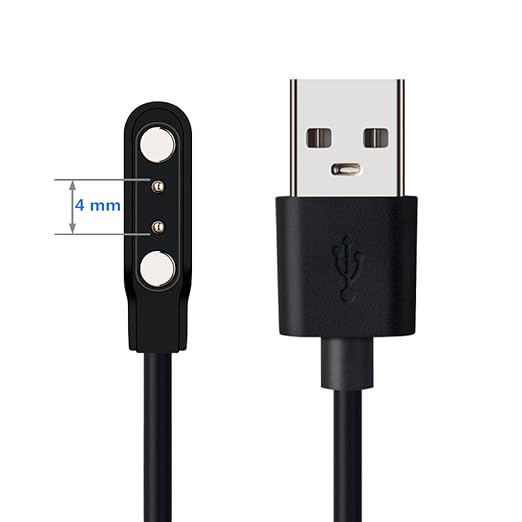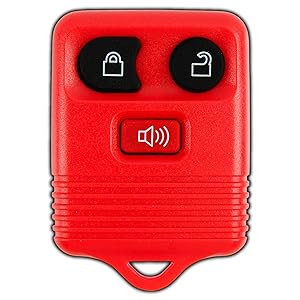The Importance of FCC IDs in Wireless Device Compliance
In today’s rapidly evolving technological landscape, wireless devices have become ubiquitous. From smartphones to IoT gadgets, the demand for wireless connectivity is at an all-time high. However, with this explosion of wireless technology comes the critical need for compliance with regulatory standards, particularly those set forth by the Federal Communications Commission (FCC) in the United States. At the core of this compliance process is the FCC ID, a unique identifier that signifies a device’s compliance with FCC regulations. This article delves into the importance of FCC IDs in wireless device compliance, exploring their implications for manufacturers, consumers, and the industry at large.
Understanding FCC IDs

FCC IDs are unique identifiers assigned to devices that operate on radio frequencies. The ID is crucial for indicating that a device has been tested and complies with FCC standards designed to ensure minimal interference with other devices and systems. The ID typically consists of two parts: the grantee code and the product code.
- Grantee Code: This is a three- to ten-character alphanumeric code assigned to the manufacturer or grantee of the device. It identifies the company responsible for the device.
- Product Code: This code, which follows the grantee code, identifies the specific model of the device.
For example, an FCC ID might look like this: ABC123XYZ. Here, “ABC” represents the grantee code, while “123XYZ” is the product code. This identifier is essential for manufacturers and consumers alike, serving as a mark of quality and compliance.
The Regulatory Framework Behind FCC Compliance

The FCC was established in 1934 with the mission of regulating interstate and international communications by radio, television, wire, satellite, and cable. The primary role of the FCC in the context of wireless devices is to ensure that these devices do not cause harmful interference to other communications services. The following regulations are crucial in maintaining this order:
- Part 15 of the FCC Rules: This part governs unlicensed transmissions, including the operation of devices that are intended to operate without a license under certain conditions.
- Part 90: This part covers private land mobile radio services and establishes the framework for various types of wireless communications.
- Part 95: This section addresses personal radio services, including citizen band (CB) radios and family radio services.
Each of these parts contains specific technical standards that devices must meet to avoid interference and ensure safety. The FCC ID serves as proof that a device has been tested and meets these standards.
Benefits of FCC IDs for Manufacturers

For manufacturers, obtaining an FCC ID is not just a regulatory requirement; it also presents several advantages:
- Market Access: An FCC ID is often a prerequisite for selling wireless devices in the U.S. market. Without it, devices cannot be legally marketed or sold.
- Consumer Trust: An FCC ID signals to consumers that the product has undergone rigorous testing and complies with safety and performance standards.
- Competitive Advantage: Companies with FCC compliance can differentiate themselves in a crowded market, showcasing their commitment to quality and regulatory adherence.
Consider the case of a small startup developing a new smart home device. By obtaining an FCC ID, the startup not only ensures compliance but also builds credibility with potential customers and investors, making it easier to penetrate a competitive market.
The Role of FCC IDs in Consumer Protection

For consumers, FCC IDs play a critical role in ensuring safety and performance. Here’s how:
- Informed Decisions: Consumers can check the FCC ID on devices to verify compliance before making a purchase. This transparency fosters informed buying decisions.
- Safety Assurance: Devices with valid FCC IDs have been tested for factors like emissions and interference, reducing the risk of malfunction or hazards.
- Accountability: The FCC ID provides a clear channel for consumers to report issues or seek recourse if a device fails to meet expected standards.
For instance, when purchasing a wireless router, checking for an FCC ID can provide assurance that the device meets necessary standards for performance and safety, thereby safeguarding the consumer’s investment.
Case Studies: The Impact of Non-Compliance

While the benefits of FCC IDs are clear, the consequences of non-compliance can be severe. Here are a couple of noteworthy cases:
- Case Study 1: Unauthorized Devices: In 2018, the FCC fined a company for marketing devices that lacked FCC IDs. These devices caused significant interference with emergency communication channels, highlighting the dangers of non-compliance.
- Case Study 2: Recall of Defective Products: A major electronics manufacturer had to recall thousands of wireless devices after it was discovered that they did not meet FCC standards. This not only resulted in financial losses but also damaged the company’s reputation.
These cases underscore the importance of adhering to FCC regulations and obtaining the necessary FCC ID before bringing a product to market.
The Future of FCC IDs in an Evolving Wireless Landscape

As technology continues to advance, the role of FCC IDs will likely evolve. Here are a few trends to consider:
- Increased Focus on IoT Devices: With the proliferation of IoT devices, the FCC may implement new regulations to ensure compliance across this diverse spectrum of products.
- Global Harmonization: As markets become more interconnected, there may be moves towards harmonizing FCC ID requirements with international standards to facilitate global trade.
- Cybersecurity Considerations: The rise of wireless devices has also brought concerns about cybersecurity. Future regulations may integrate cybersecurity requirements into the compliance framework.
Manufacturers and consumers alike must stay abreast of these changes to ensure continued compliance and safety in an increasingly wireless world.
The significance of FCC IDs in wireless device compliance cannot be overstated. They serve as a critical mechanism for ensuring that devices meet safety and performance standards, protecting both manufacturers and consumers. For manufacturers, FCC IDs facilitate market access, enhance consumer trust, and provide a competitive edge. For consumers, these identifiers offer assurance of safety and accountability.
As technology evolves and new challenges arise, the importance of adhering to FCC regulations and understanding the implications of FCC IDs will only grow. In a world where wireless connectivity is integral to daily life, compliance is not just a regulatory obligation but a cornerstone of quality and safety.
In summary, whether you are a manufacturer looking to launch a new product or a consumer seeking assurance in your purchases, understanding the importance of FCC IDs is essential for navigating the complex landscape of wireless technology.


